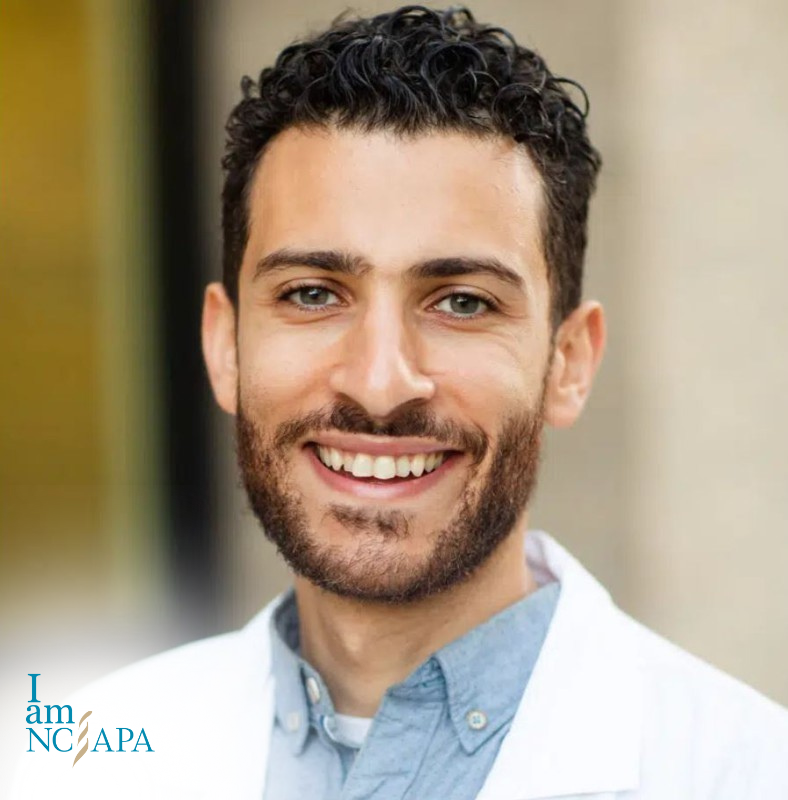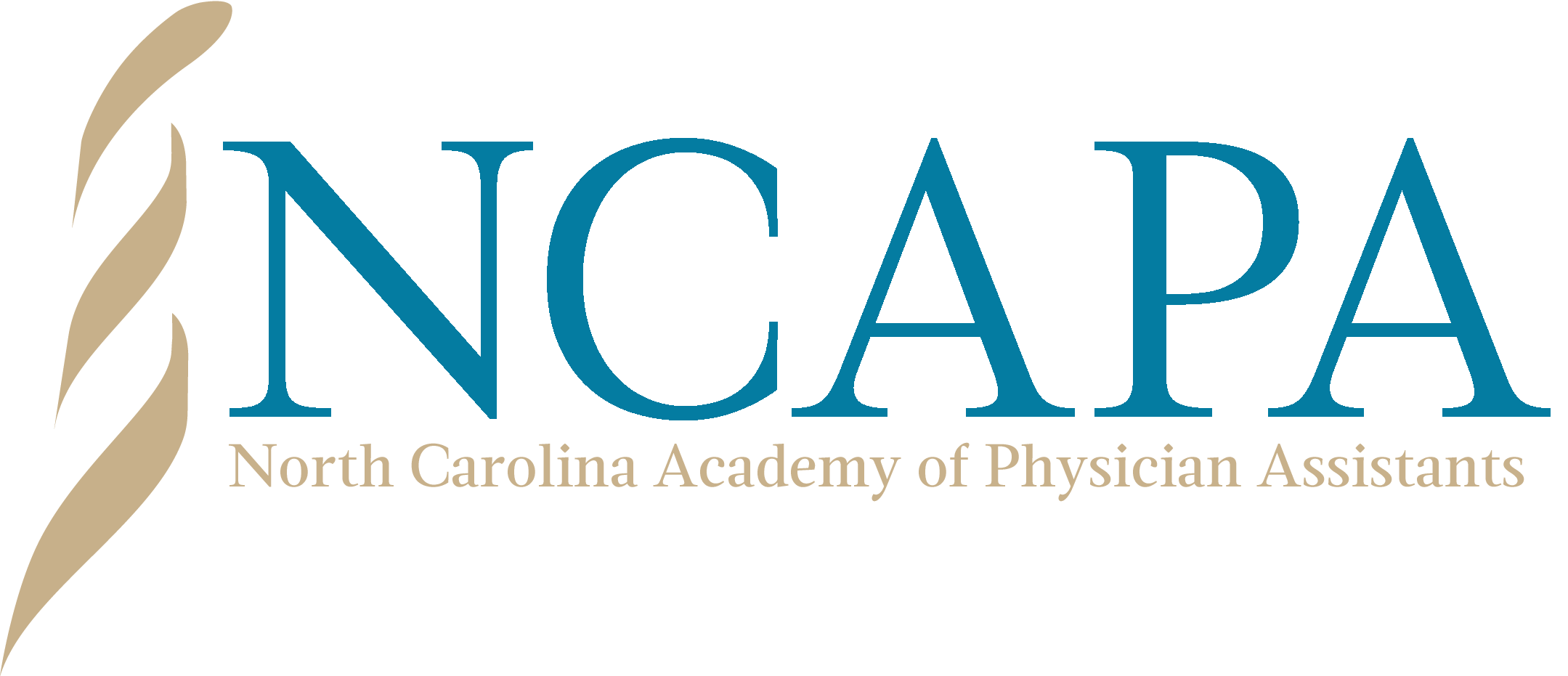For the first #IamNCAPA Member Highlight of 2024, the NCAPA sat down and spoke with Ziad El Tannir, PA-C. Ziad is a 2020 graduate of the Wake Forest University PA Program, and is currently practicing in Family Medicine. He was also a participant of Wake Forest’s Emerging Leaders Program, a three-year program consisting of earning a Master of Science in Management (MSM) degree from the Wake Forest University School of Business, followed by the two-year curriculum of the PA program.

“While I was in PA school, I received the NHSC Scholarship, and I felt very lucky to get it,” Ziad says. “Essentially, it helped cover the cost of PA school for me to work at an NHSC site after graduation. NHSC sites are found throughout the country, where the federal government has deemed it to be a place of need for primary providers, from PAs, to NPs, to DOs – you name it. I am currently at Advance Community Health, which is a Federally Qualified Health Center (FQHC).”
What is your daily routine like at an FQHC?
“I see about 20 patients a day. Most of our patients tend to have chronic diseases, from diabetes to hypertension to high cholesterol. Being a community health center, we don’t turn people away. We have a sliding scale system for payment, so we take their income into consideration. That is part of what I like about my job – I can see patients from all walks of life, from immigrants to local residents, who may or may not have insurance or the means to receive care.”
Ziad has also recently entered into a new role within Advance Community Health as a Clinical Informaticist. He travels to the main Advance Community Health Clinic in Raleigh to “analyze and interpret data from our EMR, Epic, in order to help our organization make better decisions.” Ziad says, “I recently became a certified Epic Provider builder and I have been creating order sets and templates to help providers use the system more efficiently which will increase provider satisfaction and hopefully decrease burnout.”
How does being a PA influence your role as a Clinical Informaticist?
“Sure – you don’t see a lot of PAs in these positions, so it’s definitely a privilege to be in this role. It was great for me to both clinical and administrative. I get to collaborate with other APPs, and it’s been good to have a position that enriches that trust between other members of my team.
What influenced you to pursue the PA journey?
“After my undergraduate career, I volunteered in a free clinic in Matthews, NC,” Ziad says. “I got to see how the clinic was run and through that, I was introduced to the PA profession. It took me a while to know about the PA profession. Seeing the scope of practice and shadowing under different PAs within different specialties inspired me to pursue it as a career. Last year, I precepted PA students, and it was nice to be able to be on the flip side of that to help mentor future PAs.”
What has your experience been like as a preceptor?
“I definitely enjoyed it. It added more of a time investment throughout my day as a clinician, balancing it with seeing patients, but it felt very rewarding to have been helped in the past, and pass along the knowledge to students that I know will do well in the future.”
If there’s anything you could say to the future generation of PAs, what would it be?
“If you have an inclination into the medical field, shadow everyone,” he advises. “Shadow different roles, talk to different people in different positions in different specialties. The biggest thing is exposing yourself to everything. It’s really hard to know what you like until you get a taste for it. Reach out to as many PAs as possible. You’d be surprised how many people would be willing to help you in some way, shape, or form.”
What has been your favorite part of being a PA?
“I really like the populations that I work with, as I can see the whole family, from the grandparents to the parents, their siblings, to their kids. It’s a privilege within my role to see people where they’re at. You want to practice evidence-based medicine, but you also have to look at the patient, their current situation, their health literacy, the kind of medications they can afford. These are things you have to take into account when treating a patient. You have to look at the patient as a separate human, and not as another slot in the schedule. Seeing my patients repeatedly helps me to get to know them and to treat them based on their journey in life.”
“We’re also definitely striving to address social determinants of health that impact our patients. We have a social worker and a nutritionist available, and we are doing things to fully address those factors for our patients.”
Where do you see the PA profession changing in the next five or ten years?
“What I would like to see is more representations of PAs on the state level as well as the national level. I would like to see more PAs in administrative and management roles, so that PAs can get more representation. I also want to work towards Optimal Team Practice, with the optimal goal of enacting it on a national level.”
If you were not a PA, what would you do instead?
Ziad laughs, “That’s a great question. I would be either a consultant… or a park ranger.” He laughs at the differences between those roles. “I actually grew up in the city, but I am very much into the outdoors. In my free time, I like exploring different national parks and I try to spend as much time as I can outside.”

